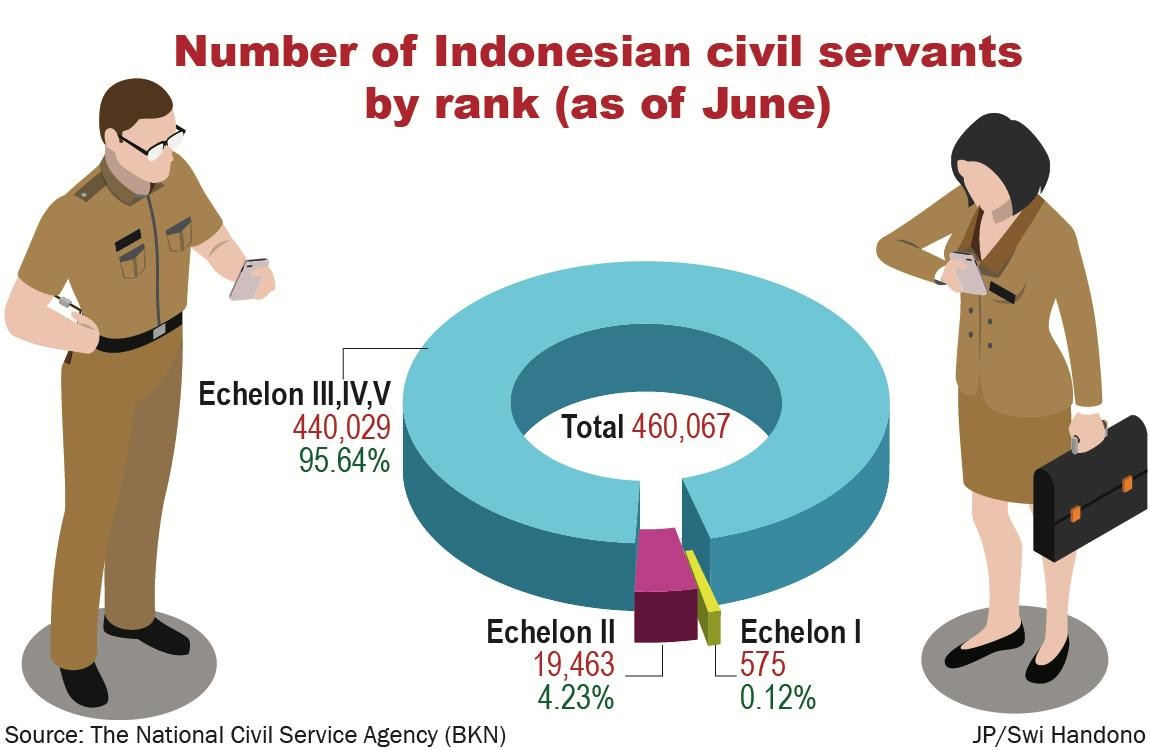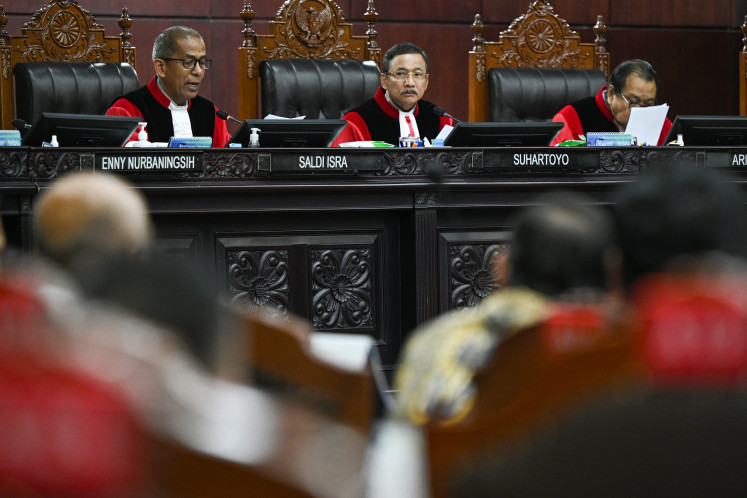Popular Reads
Top Results
Can't find what you're looking for?
View all search resultsPopular Reads
Top Results
Can't find what you're looking for?
View all search resultsBureaucratic deadwood
Even when the KASN is doing its job, violations of the code of ethics within the civil service have remained rampant.
Change text size
Gift Premium Articles
to Anyone
A
fter more than 20 years of reforms, Indonesia is still grappling with a corrupt and inefficient bureaucracy. The much-awaited bureaucratic reform gained traction when the House of Representatives passed the state civil apparatus bill into law in 2014, but now the same entity wants to reverse the course and douse the spirit of change.
The House has officially tabled a revision to the State Civil Apparatus Law No. 30/2014 as an initiative bill for deliberation with the government, with the aim of dissolving the Civil Service Commission (KASN), the oversight body mandated by the law to ensure the bureaucracy upholds meritocracy, impartiality and professionalism.
United Development Party (PPP) lawmaker Syamsurizal told a hearing with Administrative and Bureaucratic Reform Minister Tjahjo Kumolo on Jan. 18 that supervision of civil apparatus could be returned to the government, in this case the Administrative and Bureaucratic Reform Ministry. The KASN is deemed to have failed to live up to expectations and even its formation was seen as irrelevant in the first place.
Tjahjo neither agreed nor disagreed with the House’s intention, but the plan to dismantle the KASN comes against the backdrop of the government’s move to dissolve 10 institutions as part of bureaucracy streamlining, with 19 more in the pipeline pending a consultation with the House. While the KASN is not on the government’s elimination list, revision of Law No. 30/2014 only shows the political elite’s quest for control of the bureaucracy.
In the current political landscape, in which the ruling coalition holds nearly four fifths of the House seats, the negotiation to remove the KASN will likely turn into talks between friends.
It is true that the KASN, which answers to the President, has not significantly changed the way the bureaucracy works. After all, bureaucratic reform is a work in progress and requires solid interdepartmental coordination and cooperation. The KASN cannot exercise its oversight mandate without support from related institutions.
Even when the KASN is doing its job, violations of the code of ethics within the civil service have remained rampant. The Corruption Eradication Commission (KPK) arrested then-PPP chairman Muhammad "Romy" Romahurmuziy in March 2019 for accepting bribes from two officials of the Religious Affairs Ministry, whom he helped win promotions. The KPK later revealed such transactional practices in, among other regencies, Klaten, Nganjuk, Cirebon and Kudus involving the regional heads.
The impartiality of the bureaucracy has always been put to the test ahead of elections. The 2016 Regional Elections Law bans incumbent regional heads from rotating or replacing officials six months ahead of an election without approval from the Home Ministry, but the politicians have always found loopholes as in several cases uncovered by the KPK.
In any case, external supervision entrusted to the KASN will work better than internal mechanism by the government, which characterized the bureaucracy under the New Order, when civil servants had undivided loyalty to the ruler.
Your Opinion Matters
Share your experiences, suggestions, and any issues you've encountered on The Jakarta Post. We're here to listen.
Thank you
Thank you for sharing your thoughts. We appreciate your feedback.










